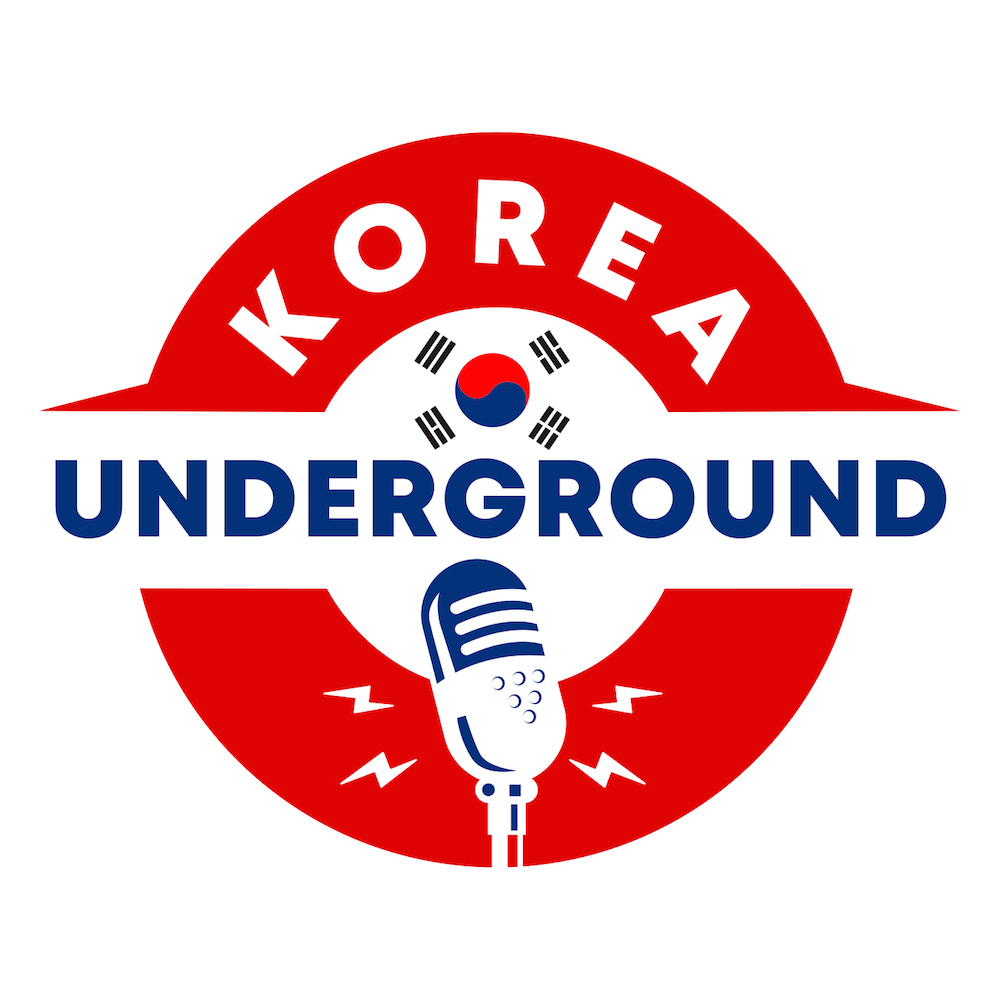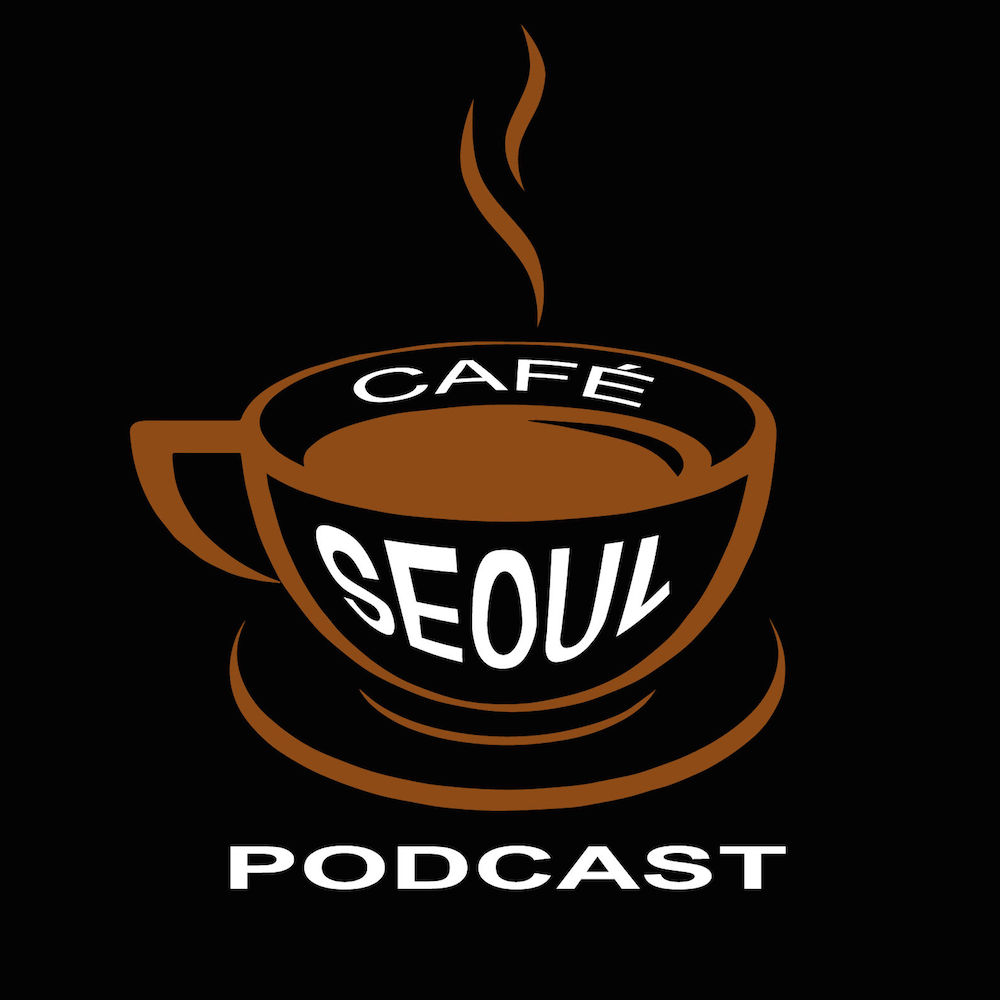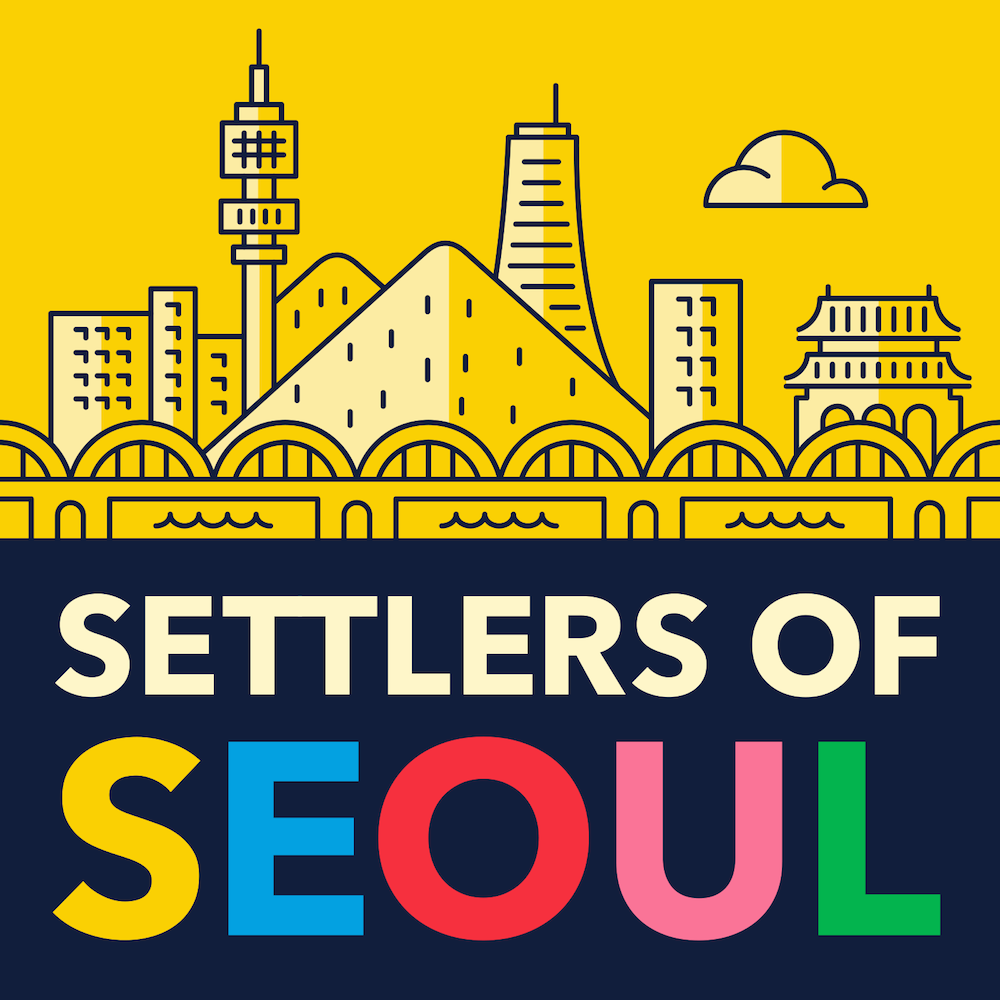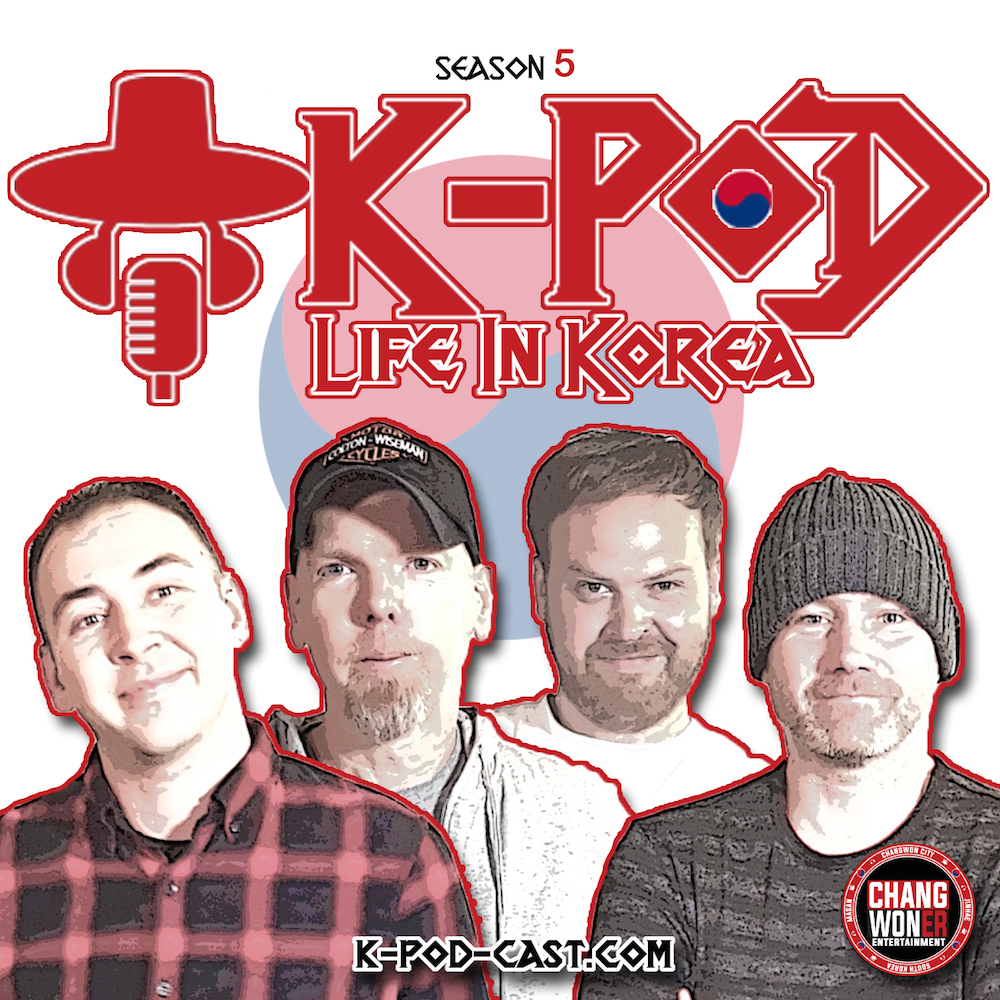Before I moved to Korea, I prepared for the experience in part with podcasts, both Korean shows to further familiarize myself with the language and English-language ones made by Westerners already in Korea. But that was half a decade ago now, and all the Korea expatriate podcasts I’d enjoyed — Seoul Syndrome, Chance and Dan Do Korea, and other titles that escape me — have vanished down the internet memory hole. But for every Korea expat podcast that fades away, at least one rises in its place, and now as then an iTunes search will turn up a handful of shows whose makers have managed to put out episodes in the past few months. Having logged a few expat years myself at this point, I thought I’d tune in to the offerings of the current crop of Korea-based Westerners with microphones to hear how their perspectives on life in the Land of the Morning Calm compare with my own.
Listening took me back to the period of my American life during which I wrote “Podthoughts,” a weekly podcast review column for the podcasting network Maximum Fun. These were the years 2008 to 2014, a time when podcasting itself had yet to become quite as powerful a cultural phenomenon as it is today. A decade ago, the mainstream still seemed to regard listening to podcasts, let alone producing them, as a niche hobby, if it regarded them at all. Now everyone even mildly famous is expected to host a podcast or two, and every subject, no matter how obscure, is expected to have at a show dedicated to it. In my columns I used the shorthand TTWGBAC to denote what then just felt like the most common genre of podcast, Two Twentysomething White Guys Bullshitting About Culture; these days, that demographic’s penchant for podcasting is taken as given, whether for the basis of jokes or calls to diversify what has rapidly become a medium more relevant, in some ways, than the mainstream.
Not much has changed in the world of Korea expat podcasting, whose standard form could be called Two Twentysomething White Guys Bullshitting About Korean Culture, except the guys now tend to be thirty- and fortysomethings. And while there are sometimes more than two of them or they’ve brought aboard a female co-host, they do, for the most part, remain white. But the lack of ethnic variety is less disappointing than the lack of occupational variety: like most podcasters, Korea expat podcasters have day jobs, and as far as I can tell, those day jobs all involve teaching English. “Let me guess,” said a man I met in England as soon as he heard that I live in Korea. “You graduated college, couldn’t find a job, went to Korea to teach English, and decided to stay.” I’ve experienced countless variations on this interaction in the United States, Canada, and elsewhere, and have everywhere given the same response: no, I’ve never taught English myself, but 99 times out of 100 you’d be right.

As English teachers themselves, Korea expat podcasters tend to gear their shows toward the interests of English teachers as well. This ensures a large volume of, as we say on the internet, relatable content: stories of being flown out here mere days after receiving a job offer, of being provided cramped and decrepit accommodations in dingy parts of town or middle-of-nowhere villages, and without exception of being thrust into the classroom with no preparation of any kind. The experiences recounted on these podcasts, most of which date from the past decade or two, sound much the same as the one fictionalized by Kevin M. Maher, who came here to teach in the 1990s, in his novel No Couches in Korea. But in the long term, the most enterprising Western English teachers find ways to profit from Korea’s English cancer, climbing the ladder from fly-by-night private academies to positions in public schools and even universities, making a decent wage for relatively easy work without even having to pay their own rent.
I can understand the appeal having your employer take care of your housing as well as your visa — and potentially other everyday needs as well — but it always struck me as a bit too “Sixteen Tons” an arrangement to get involved in myself. More off-putting was the apparent fact, discussed sooner or later on most Korea expat podcasts, that few English teachers have the opportunity, or indeed the willingness, to acquire the Korean language. (Surprisingly, Korean schools demand not even basic Korean competence from their English teachers.) It turns out to be a formidable barrier to learning the language of the country you live in when you have to spend your days forcing its children to learn your own native language, let alone when your social circles consist almost entirely of people in exactly the same situation. That, in part, accounts for the known difficulty of moving from English teaching to any other field, and thus for the tendency of Korea’s Western English teachers to exist in, if not an underclass, then at least a society apart.
Whatever the discomforts of such an existence, they haven’t stopped Korea’s expat podcasters from living here five, ten, fifteen, even twenty years. Many had only intended to stay and teach for a year or two, a fact that opened many of the stories I heard when I first visited Korea and asked the Westerners I happened to meet what brought them here. As it happens, I made that first visit as a podcaster myself, recording a season in Korea for an interview show called Notebook on Cities and Culture. And though at that point I’d already made the decision to return to Korea to live-full time, I couldn’t help be be shaken by the attitudes exhibited by some of the expats (not necessarily interviewees) that I met while traveling the country: even if they’d built a seemingly successful life and career here, quite a few appeared to harbor a deep unhappiness about Korea, the kind that would emerge in full force after a drink or five.

“Everybody’s met the foreigner in the bar who’s just angry,” says Steve, co-host of the Korea Underground podcast. A St. Louisan who first came to Korea in the mid-2000s, Steve represents one type of Korea-based Westerner: the long-term English teacher who learns only the Korean language he absolutely needs to get by, instinctively objects to Korean social attitudes on the assumptions of a society as distant and dissimilar as the United States of America’s, and hates nothing more than corn as a pizza topping. Steve’s co-host Dan, also an American but one who seems to have spent most of his life in other countries, represents another type: the long-term English teacher who starts a family with a Korean, learns enough of the Korean language to appear on television, instinctively defends (or at least doesn’t instinctively reject) Korean social attitudes, and accepts corn on pizza. Somewhere in between falls an Australian-Korean lady named Teresa who occasionally appears as the the show’s third host.
K-Pod takes the foreigner-in-the-bar concept and runs with it by having its foreigner co-hosts record in an actual bar. The bar is located in Changwon, a small city on Korea’s southeast coast that, so I found out when I visited years ago to write about its bike-share system, boasts a population of English teachers seemingly disproportionate to its size. The podcast actually began as The Changwoner — repeatedly pronounced, alas, with a North American hard A — but has broadened its focus in recent seasons to discuss expat life in Korea in general. Or at least its episodes start out that way: as on a fair few Korea expat podcasts, the Bullshitting About Korean Culture tends to slide into Bullshitting About American Culture, even among the co-hosts not from America. Much of a K-Pod episode entitled “Learning the Korean Language” is occupied by a discussion of such pillars of cinema as Suicide Squad and Sausage Party. Conversations between Cafe Seoul co-hosts Eugene Hwang and Rob Ouwehand have a similar way of lapsing into exegeses of such non-Korean television shows as Game of Thrones and The Walking Dead.
But to criticize this tendency would be to miss a major raison d’être of Korea expat podcasts: just as podcasts in general have grown popular because they substitute for the conversations many of us seldom have with friends anymore, podcasts like Korea Underground, K-Pod, and Cafe Seoul let the culturally dislocated (and perhaps socially and professionally frustrated) Westerners here in on conversations at once about things well-known back “home” and the challenges of life in Korea. (And as Maher illustrates in No Couches in Korea, expats don’t so much want to live in another country as they want to live among expats.) Westerners who arrived here in the 1980s needed to do their best to acclimate, having lost their immediate connections to the West. Today, the internet has made it possible for expats to occupy a kind of culturally liminal state, not only keeping up with the same shows they would have watched in the country they came from, but talking about them in real time with friends from college — all while physically present in Korea.
My own motivation for moving to Korea involved not just getting deeper into the Korean language and Korean culture, but gaining a new and richer perspective on my homeland of the United States. I would submit that the kind of Americans who turn up on expat podcasts now and again eager to call Korea on every possible variety of racism, sexism, and reckless driving haven’t mentally emerged from America: unable to perceive clearly their homeland’s assumptions and orthodoxies, they see other countries first as versions of America and mount their criticisms accordingly. Some Americans never do emerge, not because of an inability to do so but because of their lack of intent to live permanently as a foreigner. While living in the United States, I’d never seriously considered how much it colors life there that those who arrive from other countries are assumed to have come to stay. In Korea, the opposite is true: in my first few years here, every Korean I met asked me “until when” I’m going to live here, a question that, asked of a foreigner in America, would come off as obscurely but resoundingly rude.

An American friend with decades of experience living in Asia describes this as “unpacking your emotional bags”: foreigners in America generally do it in a way that foreigners in Korea generally don’t. Hence the number of Westerners here, especially English teachers, who perpetually seem one bad week away from fleeing the country forever, no matter how long they’ve been here already. Korea expat podcasters cite the frequent and often unpredictable departure of friends — alongside their bad bosses, the price of deodorant, the smell of gingko trees, and corn on pizza — as one of the downsides of life here, but it’s also one of the main threats to expat podcasting itself. Cafe Seoul posted what looks to be its final episode in April of this year, long after Hwang’s departure from Korea. Though the co-hosts of Korea Underground seem to have remained in the country, only two episodes of Korea Underground have come out this year, and those after a two-year hiatus (during which an unrelated expat podcasting network called Korea Underground came out with a show called Dive In, which also hasn’t updated since April).
I launched another podcast of my own, an interview show in Korean, a couple years ago. But soon afterward I received a translation fellowship whose associated work made me put podcasting on hold, so I won’t feign astonishment at the stop-start, come-and-go-nature of these shows. But it does shed light on what people mean when they dismiss podcasts as unprofessional, which they’ve been doing since podcasting was barely viable even as a punchline. At one time it had to do with sound quality, the assurance of which podcasters have now more or less figured out. (Certain podcasts, K-Pod among them, now sound at times like highly produced FM talk radio, for better for worse.) But it has now come clear that professionalism means, above all, consistency: showing up and getting the show out at the same time every week, every day, or however often you’ve said you’re going to, whether or not the schedule or your material is ideal.
When I turn my radio on at 7:00 each weekday morning, I know that Kim Eo-jun, host of my favorite show News Factory (뉴스 공장), will be on the air — unless he falls asleep at his desk before getting out the door, which he did a couple weeks ago. Even so, he eventually made it to the studio, and podcasters have struggled with that aspect of professionalism more than any other. That goes double for Korea expat podcasters, who blame everything from their ever-changing teaching schedules to the pressures of Korean family life to urgent and unexplained needs to return to Cedar Rapids or Saskatoon or Perth or wherever. Arius Derr, the creator of the expat podcast Settlers of Seoul, may thus be on to something with his more relaxed monthly episode schedule. He’s certainly on to something with his policy of interviewing foreigners whose profession is something other than English teaching, and who have an intent to become something more permanent, or at least more invested, than expats. It would probably be too much to claim that he’s also proven his astuteness by having interviewed yours truly, but it certainly hasn’t ruined his show.
Related Korea Blog posts:
Hagwon Horror Stories: Kevin M. Maher’s English-Teaching Expat Novel No Couches in Korea
That’s Korean Entertainment: the Freakishly Fluent Foreigners of Non-Summit
Korea, Where Book Podcasts Draw Standing-Room-Only Crowds
My Favorite Kind of Korean Podcast: The Book-Reading Show
43 Reasons Everything in Seoul Is Good and Nothing Is Bad (or Something Like That)
Based in Seoul, Colin Marshall hosts the Korean-language podcast 콜린의 한국 (Colin’s Korea) and is at work on a book called The Stateless City: a Walk through 21st-Century Los Angeles. You can follow him at his web site, on Twitter @colinmarshall, or on Facebook.


